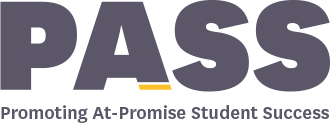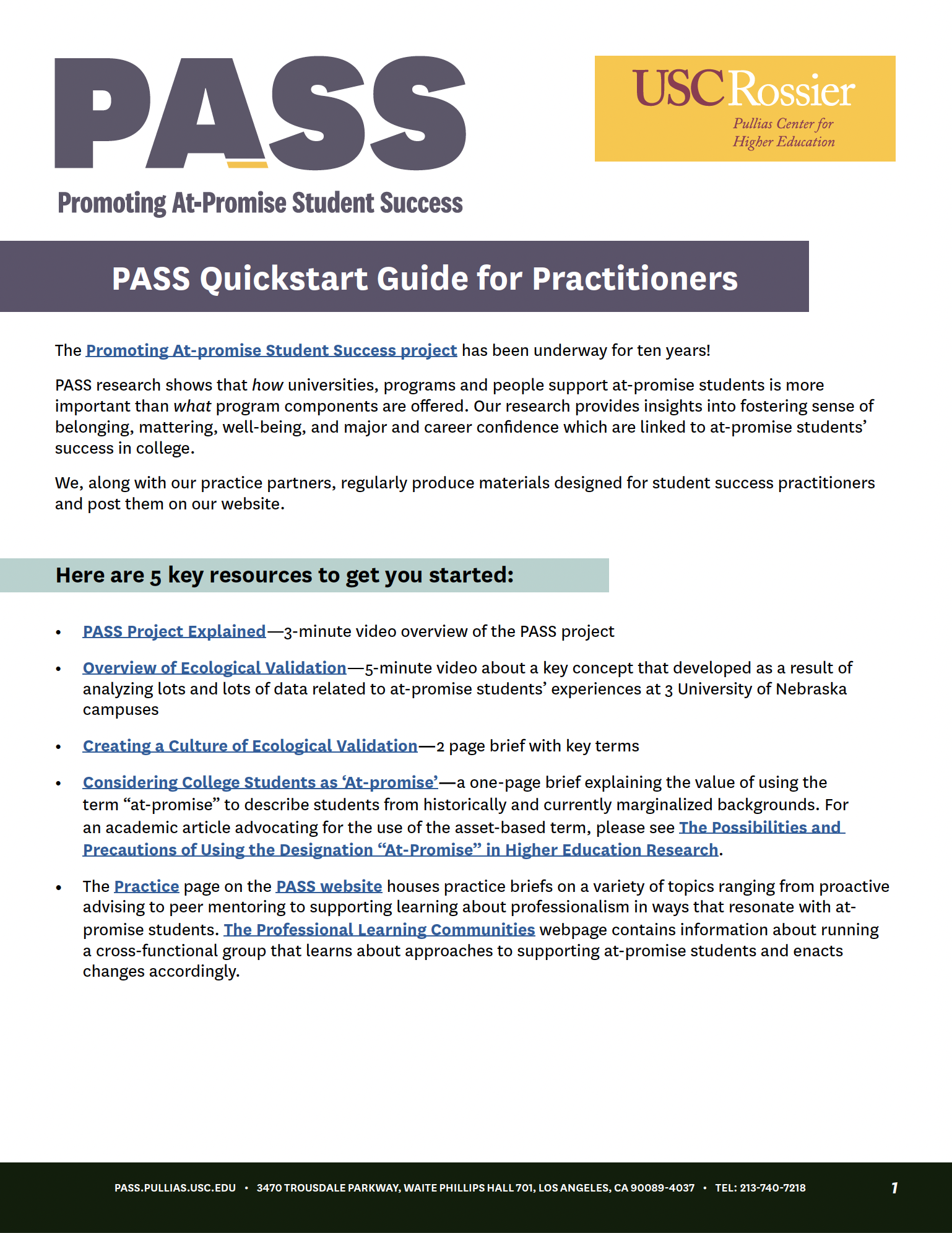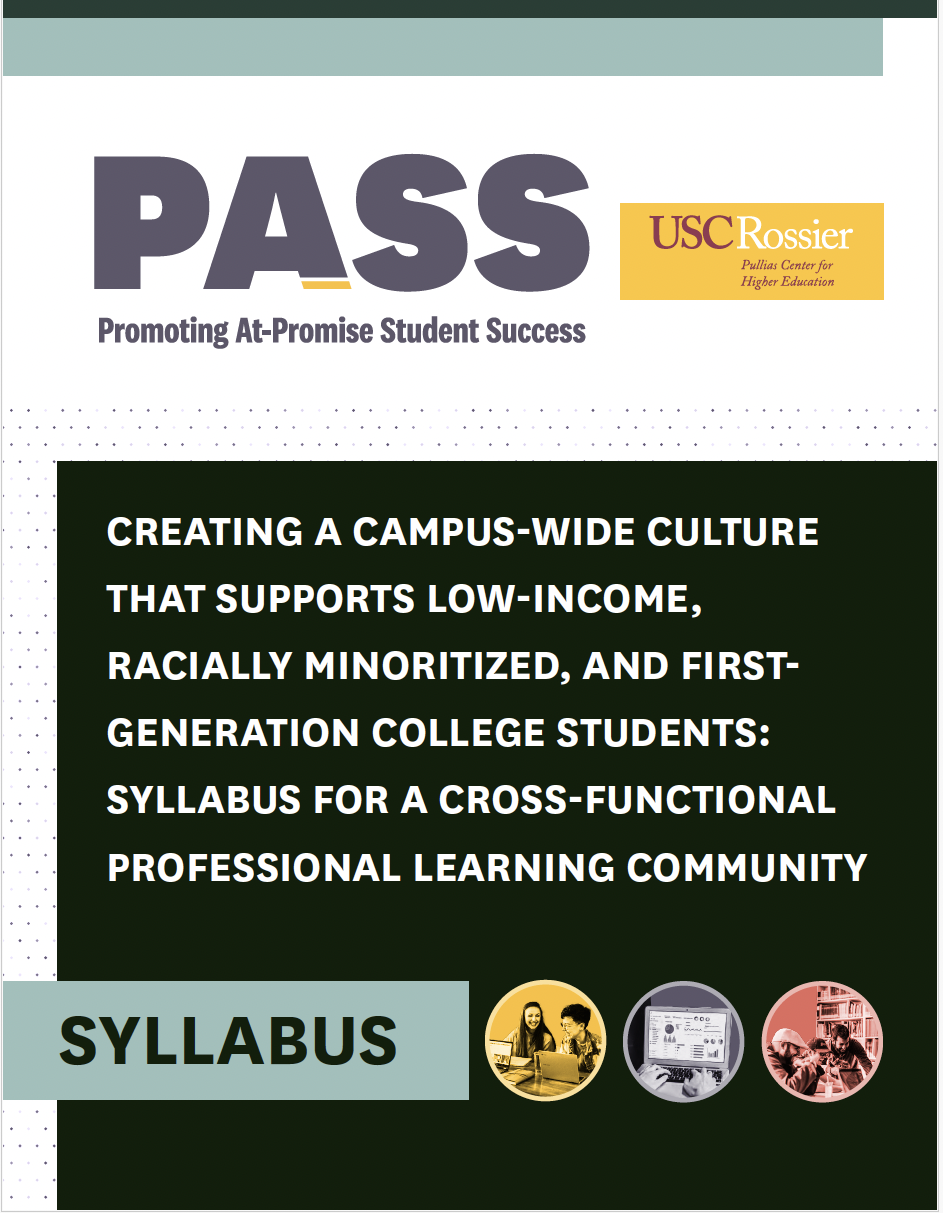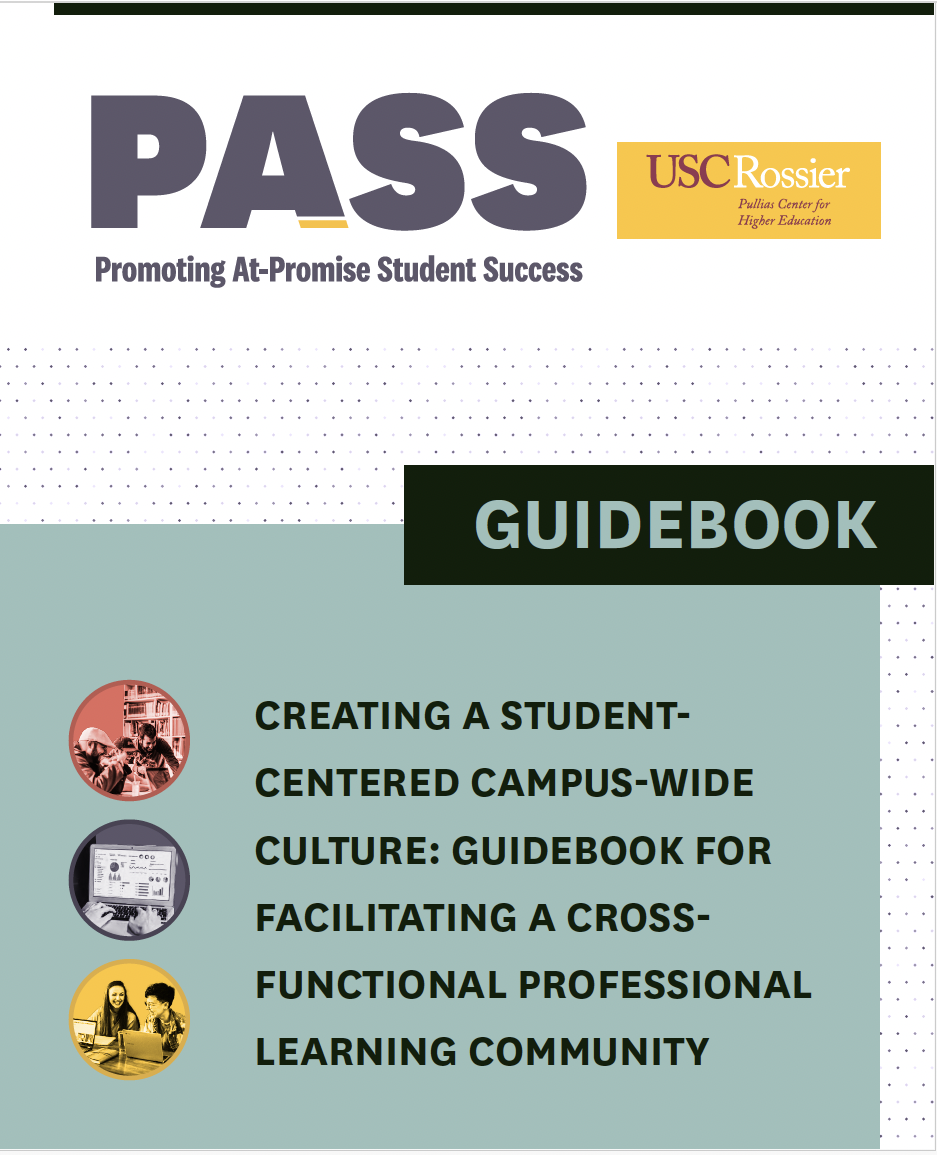Professional Learning Communities (PLCs)
A postsecondary Professional Learning Community (PLC) brings together a cross-functional group of educators (i.e., faculty, student affairs practitioners, academic affairs practitioners, central affairs administrators), to learn in community, imagine ways to improve practice, and implement change efforts. PASS PLCs seek to create spaces where educators can explore the concept of ecological validation and strategize ways to bolster support to at-promise students.
On this page, you’ll find resources for running PLCs in higher education settings and explore lessons learned through our collaboration with our University of Nebraska practitioner partners.
Webinars
This webinar features key findings from our three-year study involving professional learning communities (PLCs) designed to support at-promise students in postsecondary settings. Of particular interest, three University of Nebraska PLC participants join us to discuss their experiences and share lessons learned during the experience.
Articles
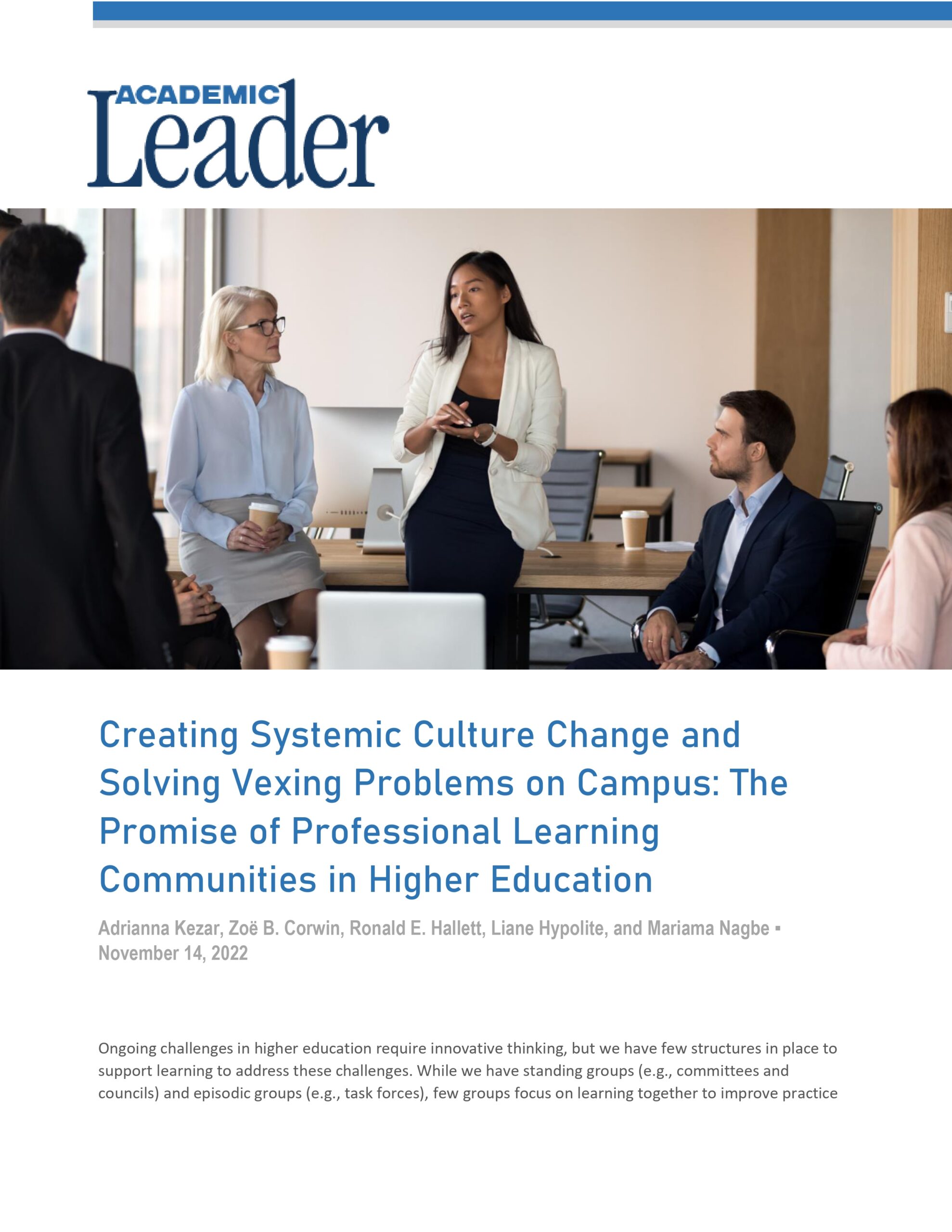
Creating systemic culture change and solving vexing problems on campus: The promise of professional learning communities in higher education.
Kezar, A., Corwin, Z.B, Hallett, R.E, Hypolite, L., & Nagbe, M. (2022).

Moving toward institutional culture change in higher education: An exploration into cross-functional professional learning communities
Kezar, A., Hallett, R. E., Corwin, Z. B. & Hypolite, L. (2024).

Professional learning communities and culture change in higher education: Facilitators to learning ecological validation to support historically marginalized students.
Kezar, A., Hallett, R. E., Corwin, Z. B., Hypolite, L. I., Nagbe, M. N. (2025).
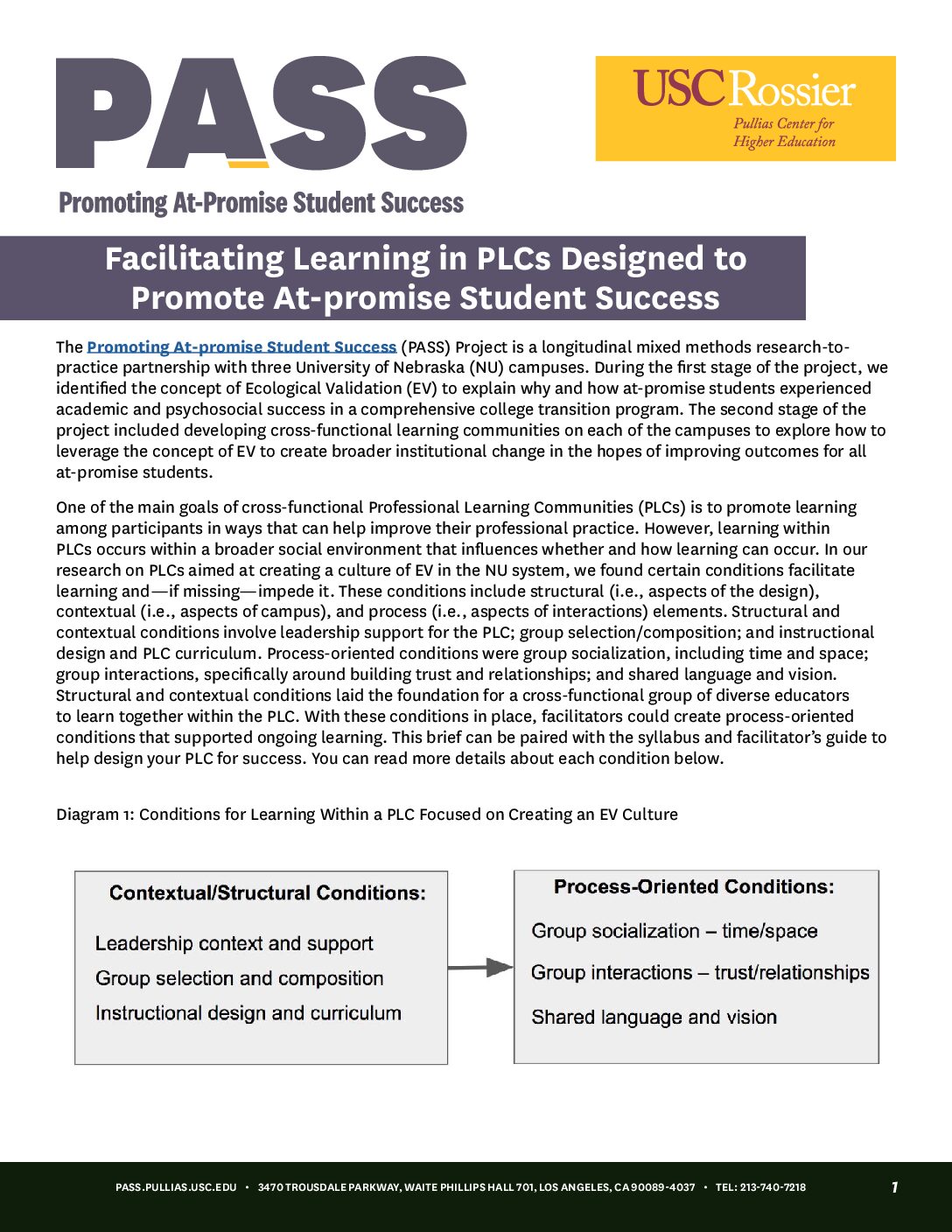
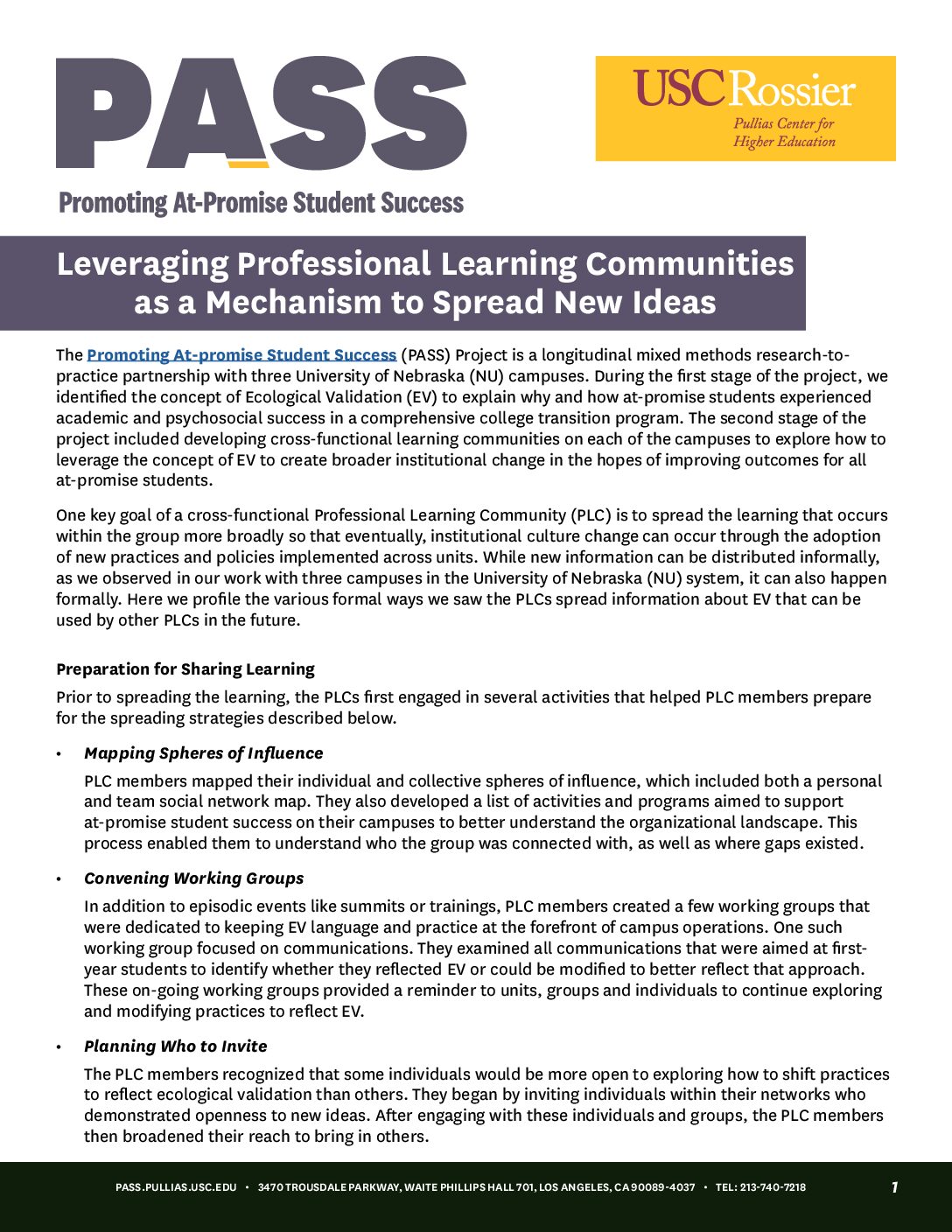
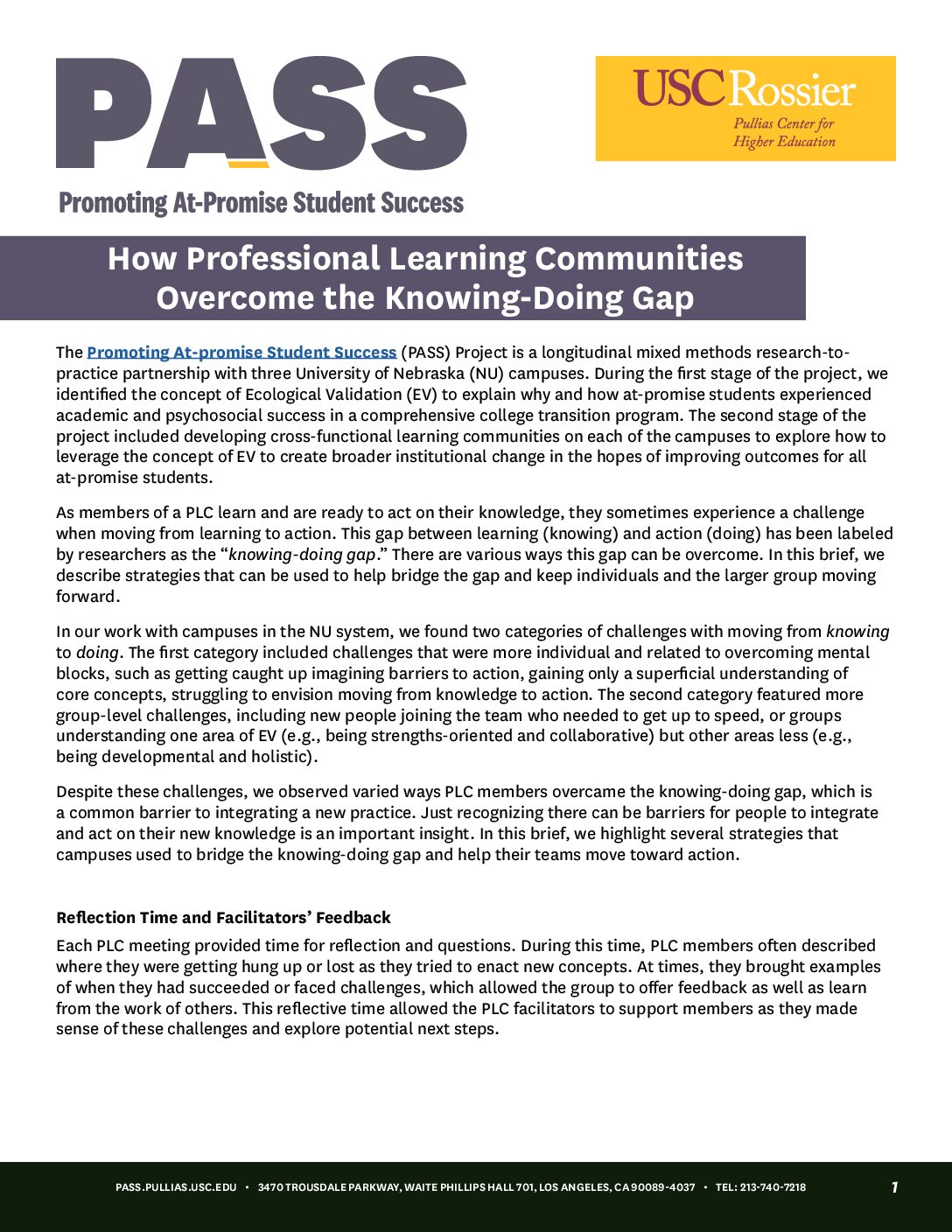
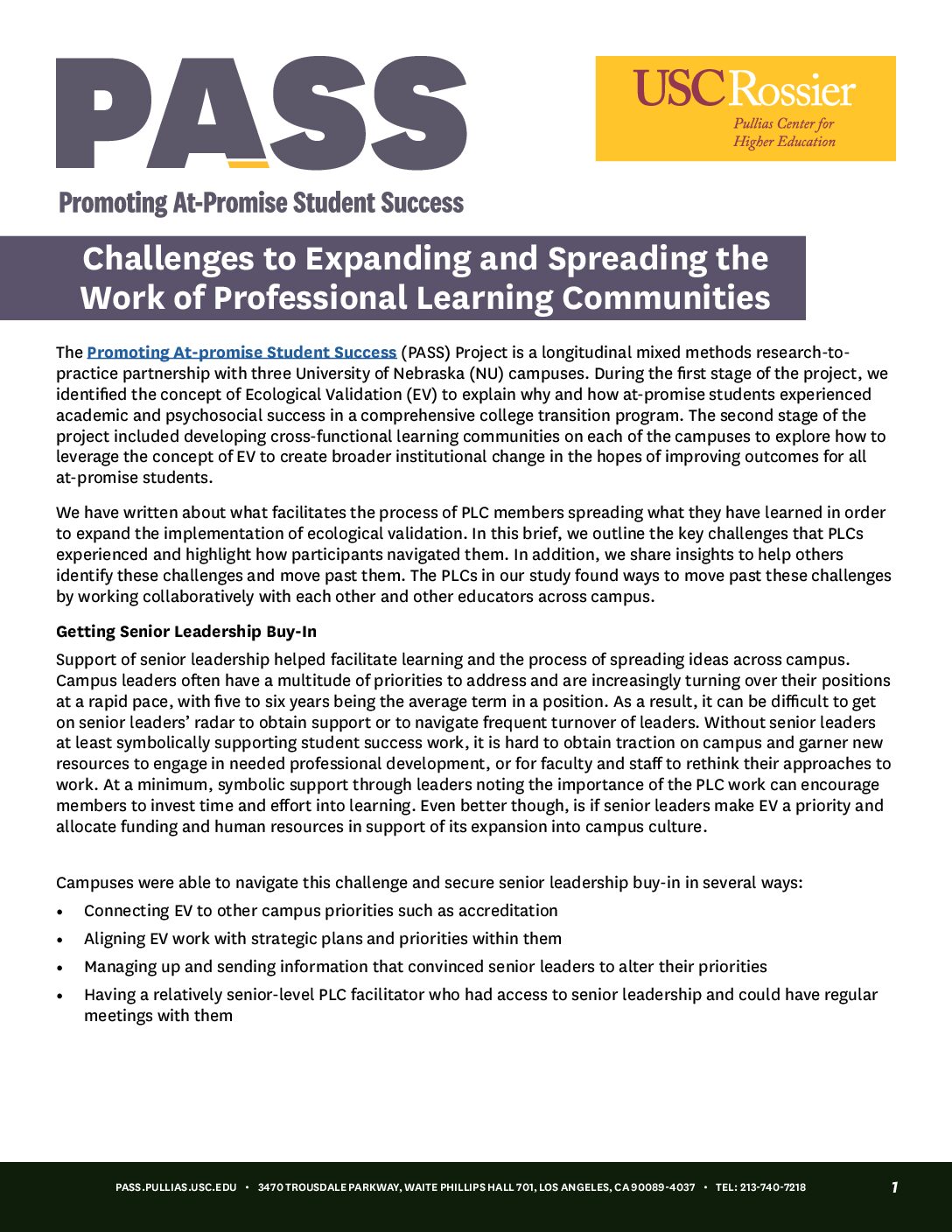
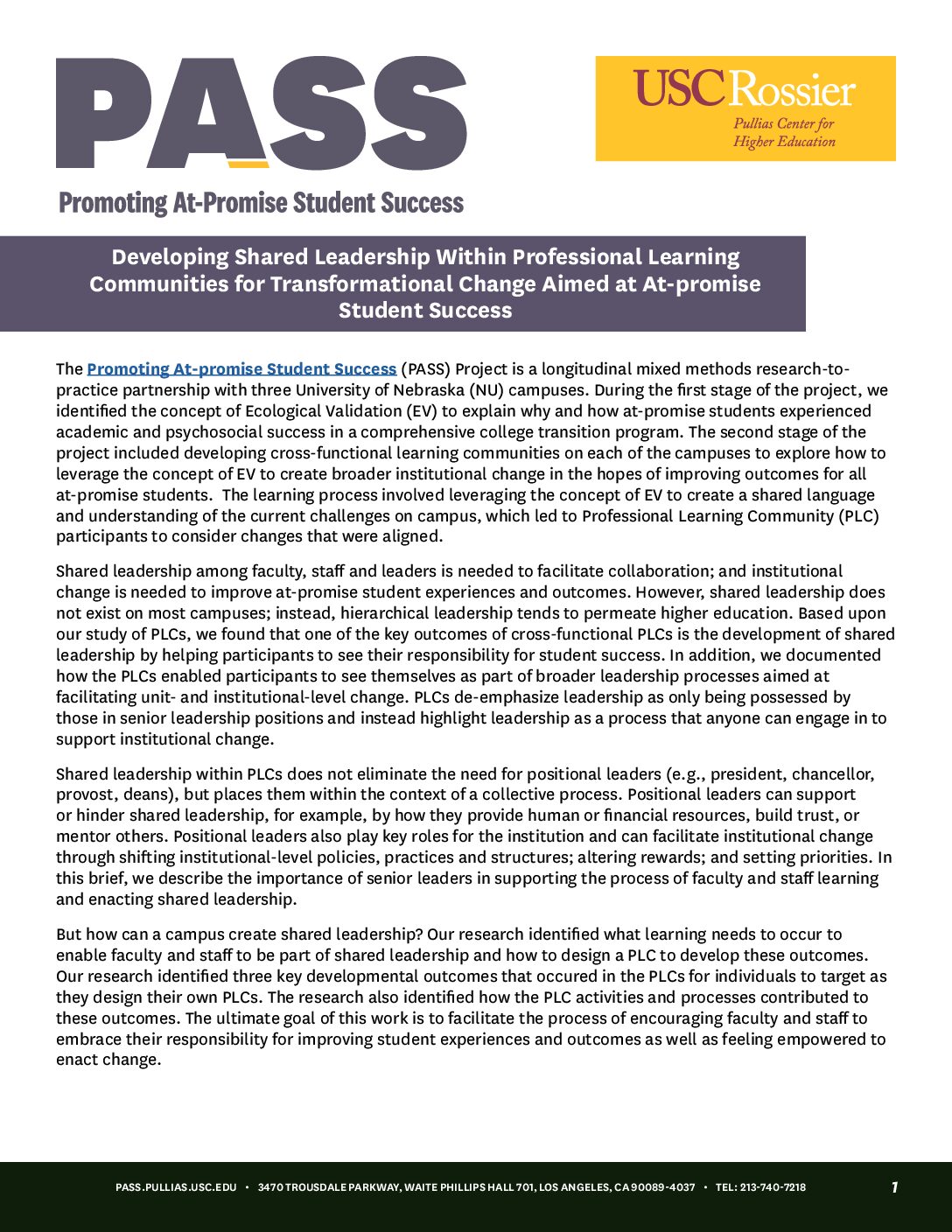
Developing Shared Leadership Within Professional Learning Communities for Transformational Change Aimed at At-promise Student Success
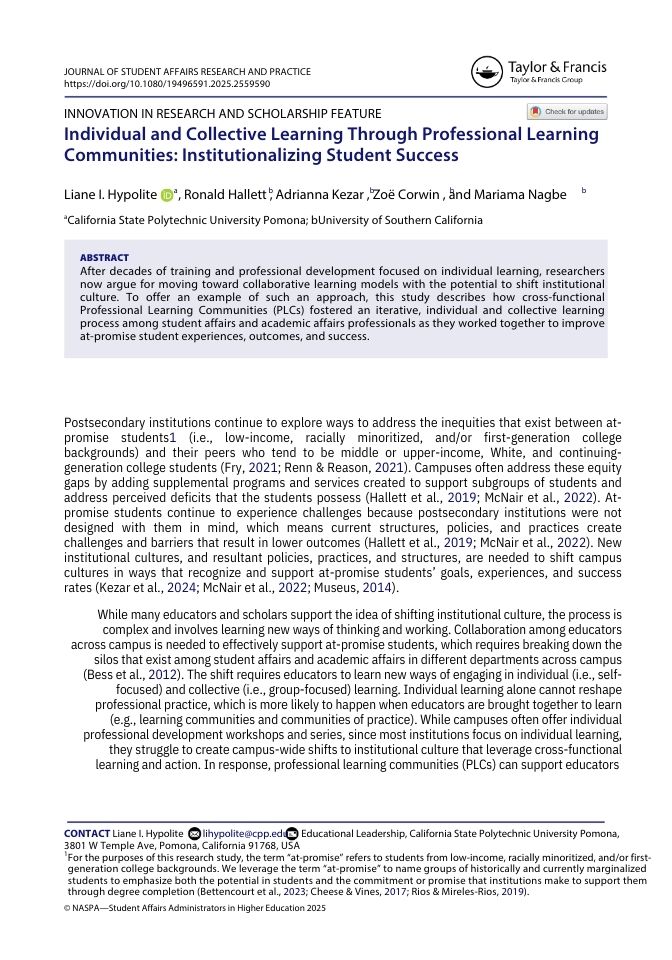
Individual and collective learning through professional learning communities: Institutionalizing student success.
Hypolite, L., Hallett, R., Kezar, A., Corwin, Z. B., & Nagbe, M. (Online first).
Briefs
Ecological Validation
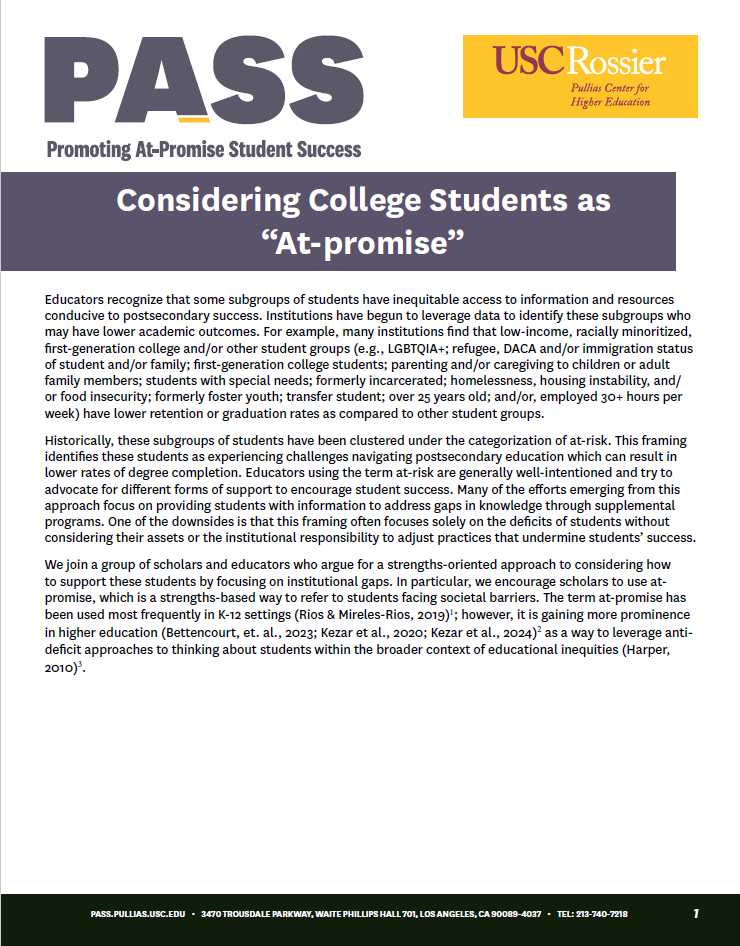
Considering college students as “at-promise.”
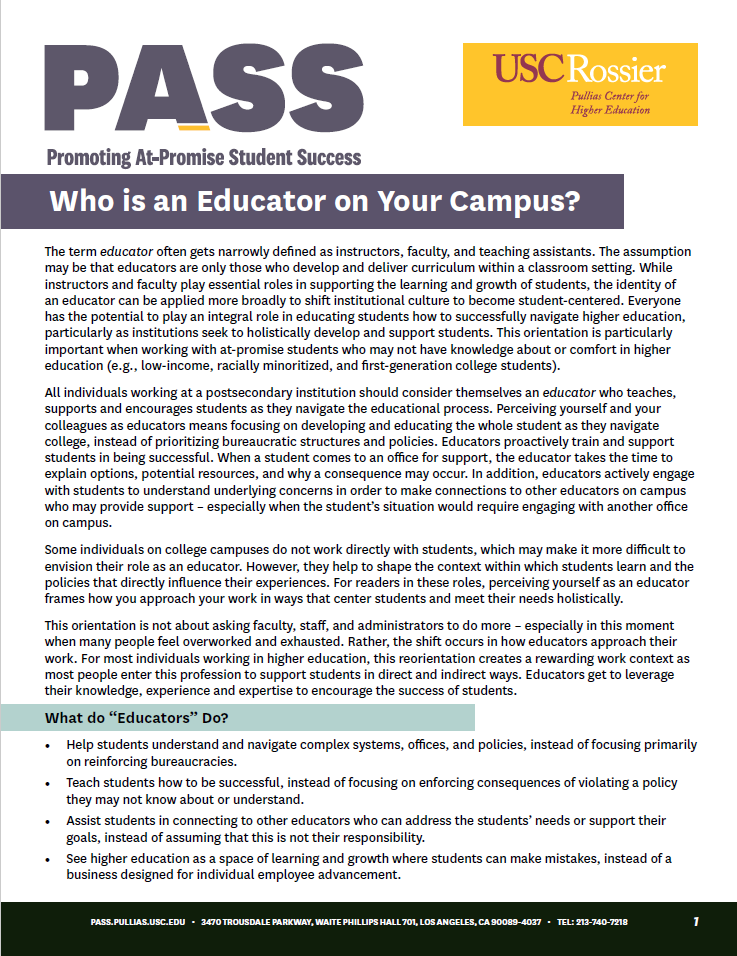
Who is an educator on your campus?

Individual and collective learning through professional learning communities: Institutionalizing student success.
Professional Learning Communities (PLCs)
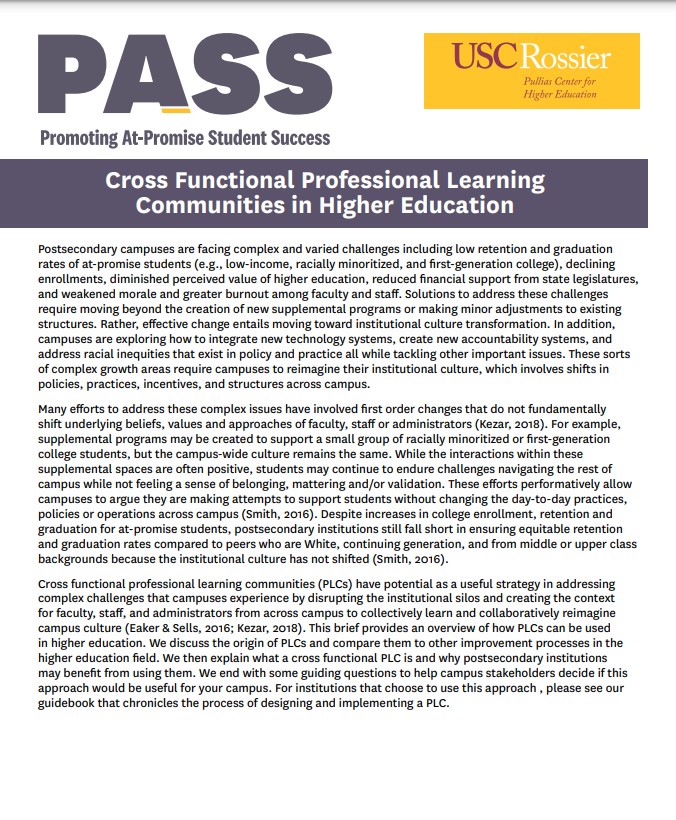
Cross functional professional learning communities in higher education.
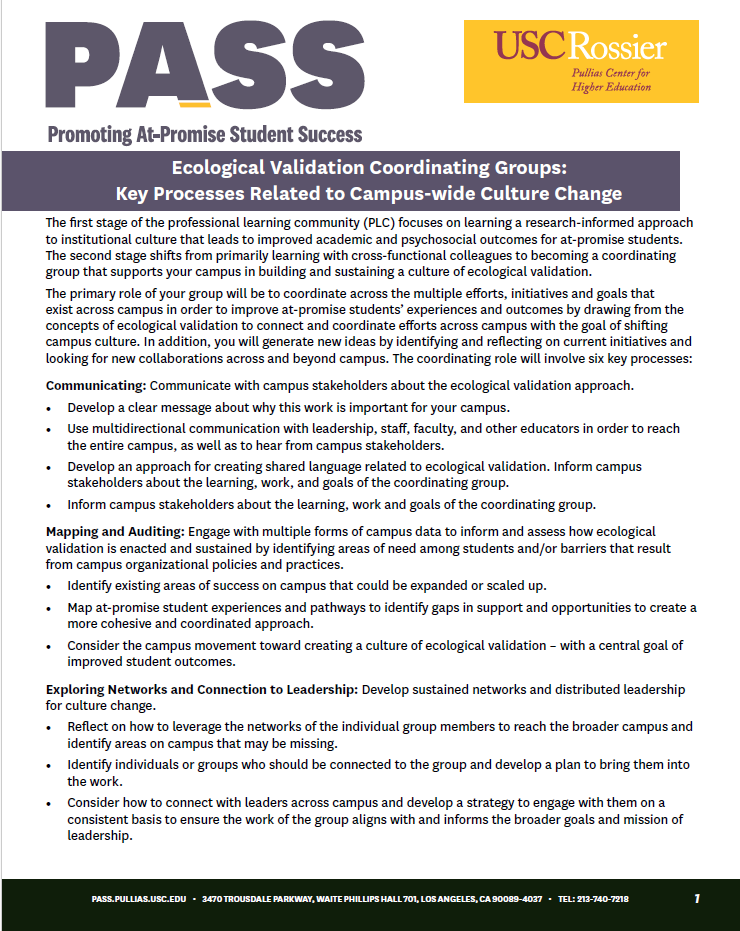
Ecological validation coordinating groups: Key processes related to campus-wide culture change.





Developing Shared Leadership Within Professional Learning Communities for Transformational Change Aimed at At-promise Student Success

Individual and collective learning through professional learning communities: Institutionalizing student success.
Activities
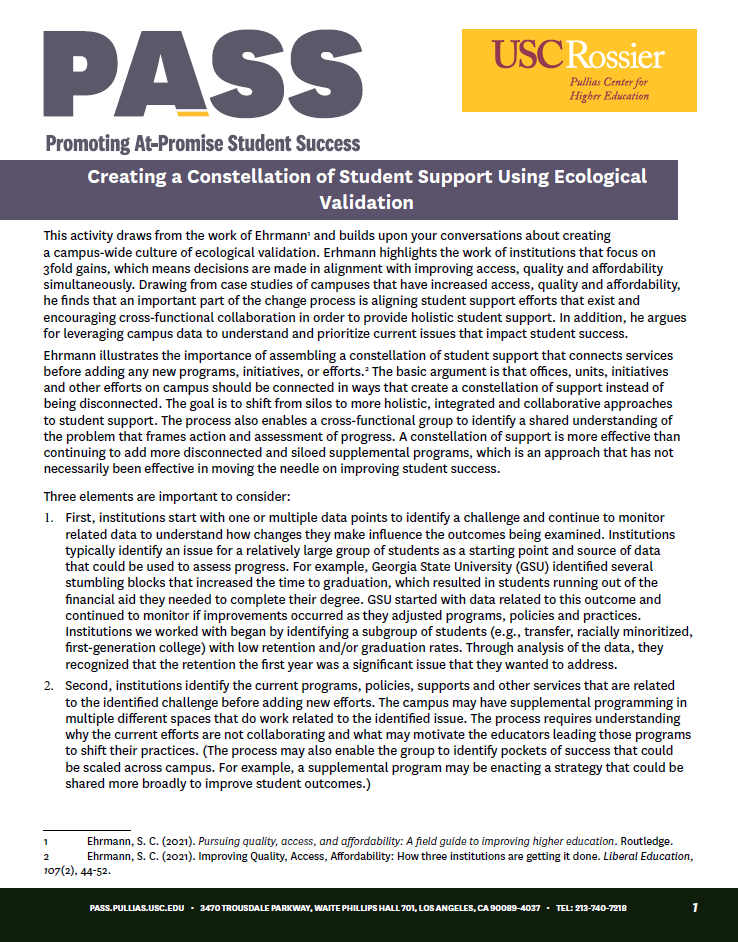
Creating a constellation of student support using ecological validation.
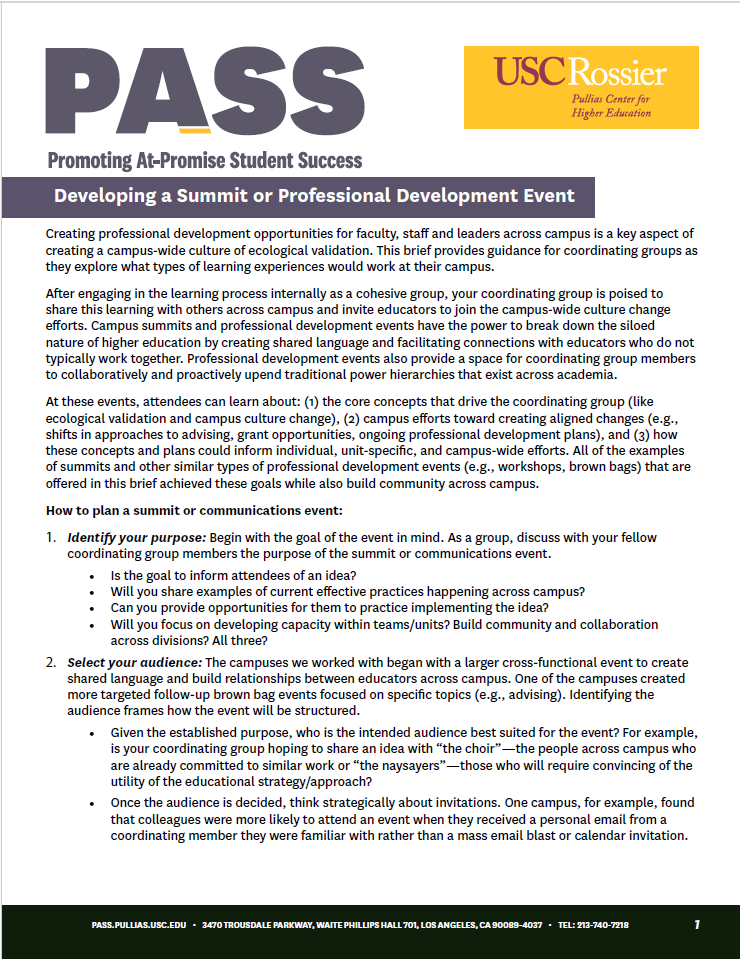
Developing a summit or professional development event.
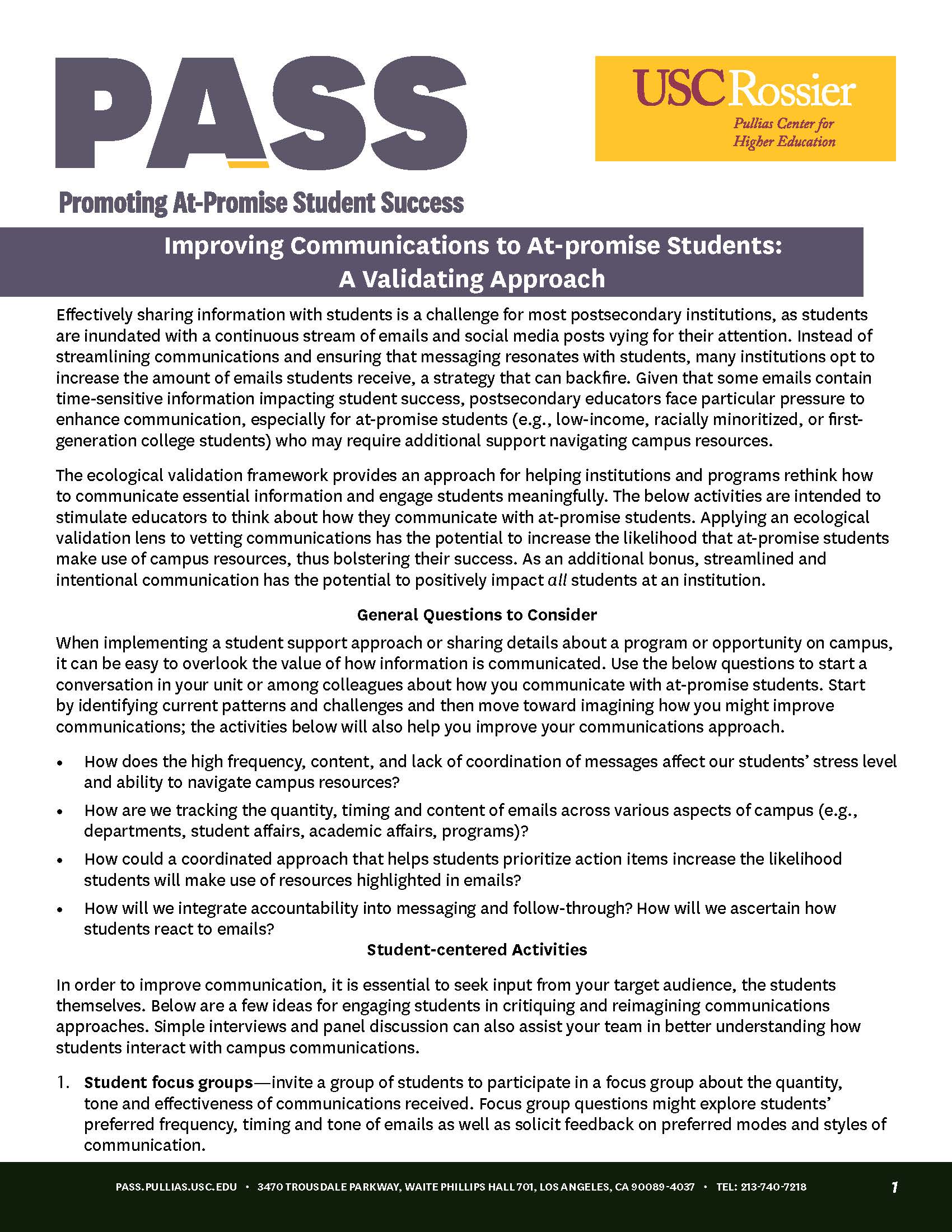
Improving communications to at-promise students: A validating approach-activity.





Developing Shared Leadership Within Professional Learning Communities for Transformational Change Aimed at At-promise Student Success

Leveraging incremental transformation to create and support large-scale institutional change.

Individual and collective learning through professional learning communities: Institutionalizing student success.
Tools for Reflection
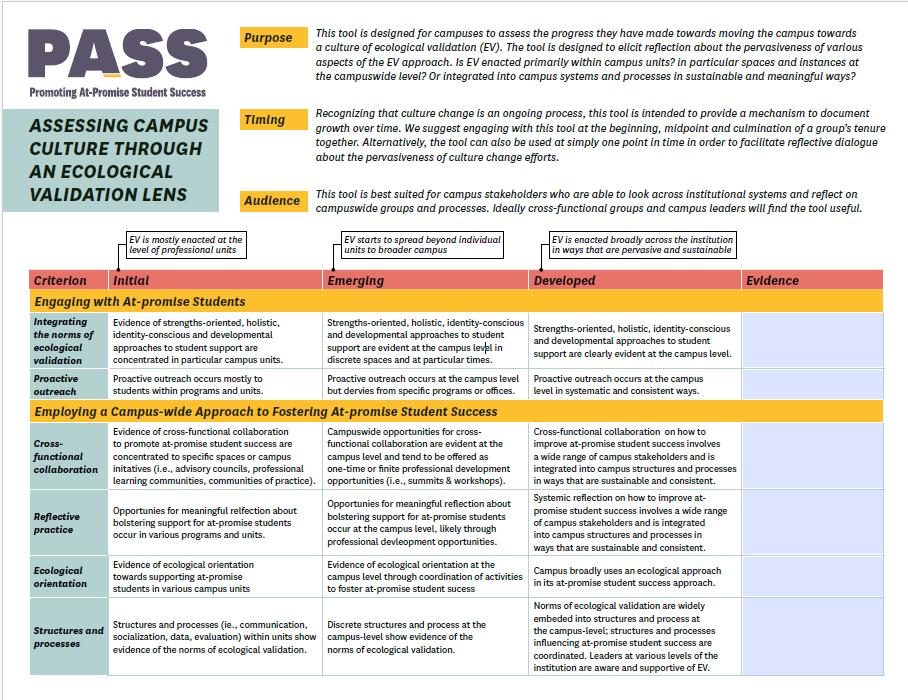
Assessing campus culture through an ecological validation lens.
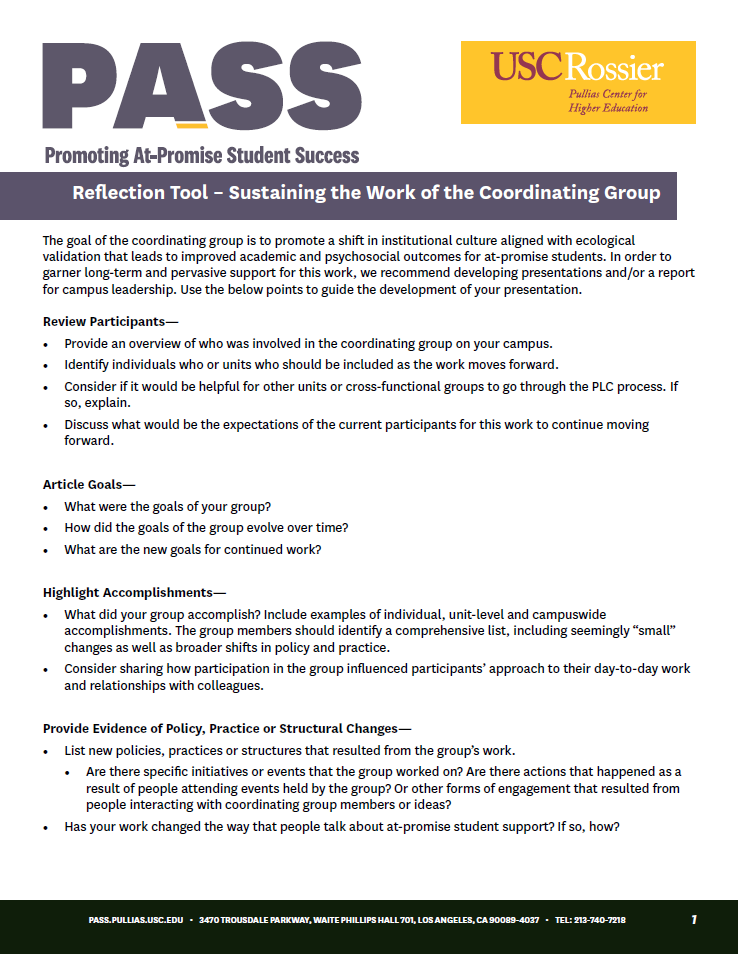
Reflection tool – Sustaining the work of the coordinating group.
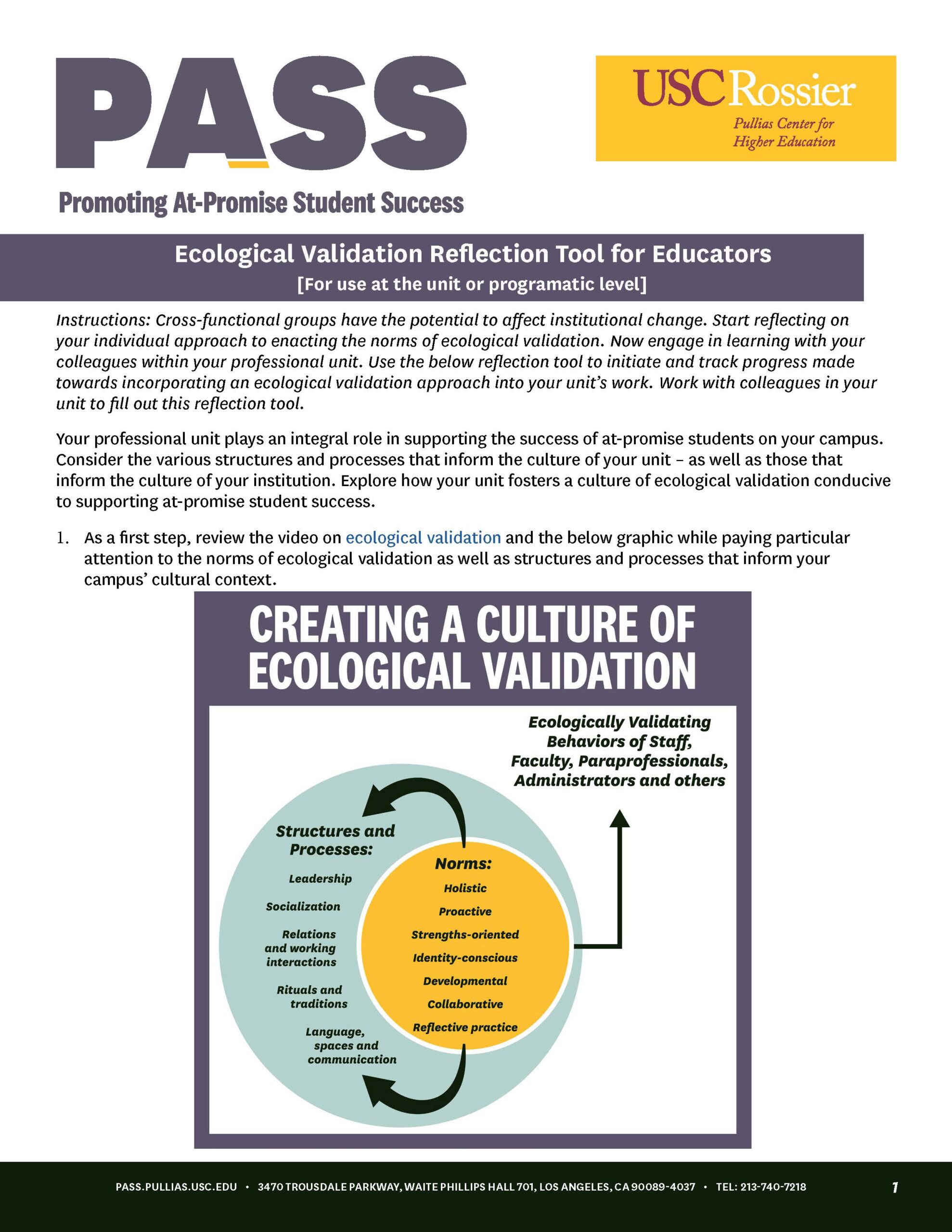
Ecological validation reflection tool – Unit level.
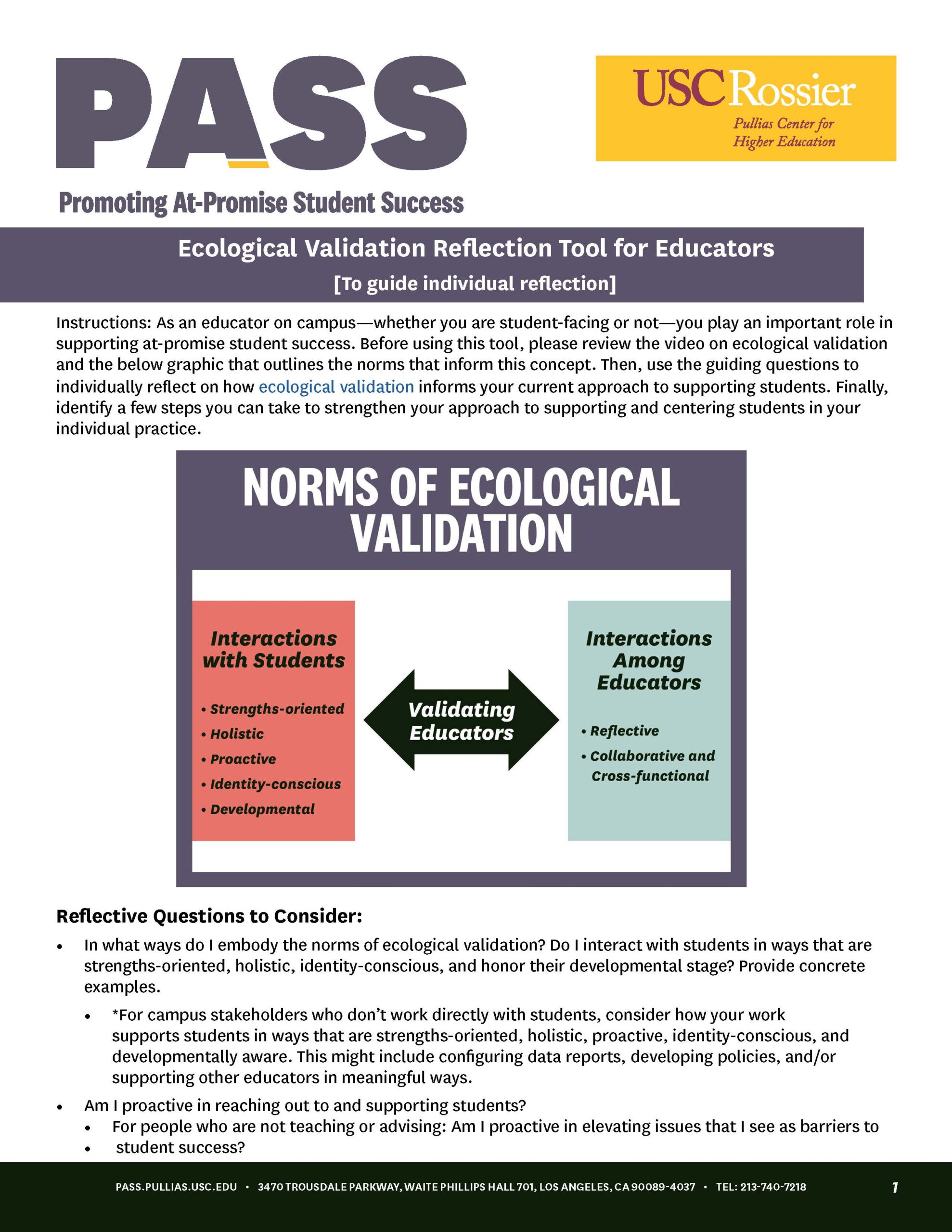
Ecological validation reflection tool for educators – Individual level.





Developing Shared Leadership Within Professional Learning Communities for Transformational Change Aimed at At-promise Student Success


